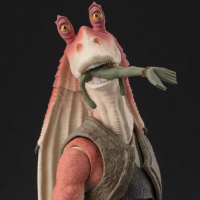What is the United States?
In his introduction to the speculative fiction anthology A People’s Future of the United States, co-edited by Victor LaValle and John Joseph Adams, LaValle cites as inspiration Howard Zinn’s A People’s History of the United States. Of particular note is that Zinn begins the book not from the perspective of Columbus, alighting on verdant, virgin land, easy fruit to be plucked and tossed into the colonizer’s basket, but from the perspective of the Arawak tribe of the Bahama Islands, swimming out to greet the new arrivals. It is not Columbus who discovers this territory; it’s the people of the territory who discover Columbus.

This reversal runs like a red-hot throughline, connecting the diverse and diversely brilliant stories in this collection. This vertebral column connects dragonriders to a miracle birth to an egomaniacal ruler willfully blind to the changing climate to a reluctant time traveler to a woman collecting the last effects of a loved one encaged and destroyed by prejudice. If speculative fiction is in the business of mythmaking, then these stories are doing double duty, both obliterating and remaking, in excellent alchemical fashion, the story of America.
What is the United States? Each story posits an answer. As varied as those answers are, they all take the terrifying, hopeful form of yet another question. What might the United States become?
Victor LaValle and I corresponded over email about the problem with Star Trek’s vision of the future, technology both as a tool of oppression and a tool for liberation, and why horror does best under Republican presidents.
Tochi Onyebuchi: This anthology is a godsend. Not only does it make me feel supremely seen as a fan of speculative fiction, but it stares issues of oppression straight in the face. We don’t stop being racist, sexist, misogynistic, transphobic in the future. Could you talk on the non-utopian impulse running through these stories? Does it run up against the stereotypical aim of science fiction to imagine our way into better selves?
Victor LaValle: I’m so happy to hear you call this book a “godsend” because that’s certainly how I felt when John Joseph Adams invited me to co-edit the stories with him. Even more so when we got down to our list of dream collaborators and then actually got nearly all of them to say yes. Looking at this table of contents felt like an embarrassment of riches, to use an embarrassing cliché.
As for the non-utopian impulse, I do think one of the more profound ideas for people–really any of us–is to grapple with the idea that our personal happiness does not necessarily equate to a universal happiness. It seems silly to have to even state such a thing, but how many folks need this lesson again and again? (Myself included.)
In the case of this anthology we took it for granted that if we invited a genuinely diverse group of wildly talented writers into the anthology, we would see wildly diverse pictures of the future. Somewhere in the world, someone always has a boot on their neck. That’s true of the past, and the present, and will be true of the future, too. It’s one of the reasons I always took issue with Star Trek’s vision of the future. Prejudice has been conquered. But don’t question why this white dude is still the boss. He’s a nice boss!
Somewhere in the world, someone always has a boot on their neck. That’s true of the past, and the present, and will be true of the future, too.
TO: Imagining a future with any measure of verisimilitude seems to necessitate contending with the fact that there will be people of color with white-supremacist capitalistic values as in Gabby Rivera’s story about this miracle birth. Prejudice follows us into the future.
VLV: One of my favorite things about this anthology is that it never turned into a simplistic white people versus POC kind of book. How could any thoughtful take on the future pretend that we all have our shit together all the time? It’s a nice dream, but I’ve never experienced it in reality. And it’s only more insidious when the people who look like us speak the ignorance of those who don’t. Hell of a ventriloquist act, really.
TO: I found Tobias Bucknell’s story fascinating, because it reified the idea of technology both as a tool of oppression and a tool for liberation. Smartphones track our locations and feed our info to the Feds, but they also let us record episodes of police brutality. Twitter facilitated so much communication during the Arab Spring, but it’s like 70% Nazi or Nazi-adjacent now. That’s part of why I found the idea of everyone getting tried in a court of law as a white man hilarious but depressing at the same time.
VLV: Tobias let that one play out like a such a gangster, I felt. Acknowledging the imbalance of the system and then showing how someone might be compelled to use it. It reminded me of a novel that came out recently, We Cast a Shadow by Maurice Carlos Ruffin. There’s a lot of potency in the idea of “passing” and how or why some of us do it. Some to blend in and enjoy the benefits of a corrupt system, but also sometimes to sneak in and smash the machine from the inside.
TO: Early on there are, I think, two stories prominently featuring libraries or bookstores, stories in which havens for books also very literally become havens for people. Could you talk about what stories in general can do for us, not only in this time, but whenever we’ve, historically, been kept under an oppressive yolk?
VLV: Stories are old technology. They bypass so many of our natural defenses. If human beings are naturally pack animals, then it can be difficult to get around that programming. There have been more than enough studies that show people don’t change their minds based on facts. The emotional impulse is just too strong. But stories, the good ones, can get around this problem by making a reader care about people who don’t look or act or live anything like them. It’s wondrous when it works. Few things do it as well.
Good stories can change people’s minds by making a reader care about people who don’t look or act or live anything like them.
TO: In Sam J. Miller’s story, resistance isn’t only marching and sit-ins and civil disobedience. It’s sex too. “I wanted to tell him that desire was not a distraction. Not something separate from the way we want freedom.” It was really poignant to see that in a story too where “Talking Politics with people” is seen as generally ineffective in bringing about change. Is pleasure an act of revolution?
VLV: I loved that aspect of Sam’s story. The story revels in the sex, the pleasure of it, and allows for a broad range of pleasures for our protagonist to enjoy. It felt genuinely revelatory that the character wasn’t punished for his pleasure, even more so as a gay protagonist. This country loves to crack the whip [on] people, and not in a fun way. That’s part of what makes the story such a great read. Pleasure can be an act of revolution, joy and optimism, too.
TO: In Omar El Akkad’s haunting story, “Riverbed,” you have these twin harbingers of change: climate catastrophe and immigration. It always seems as though it’s never just one thing at a time. Change is all these things braided together and it can seem like the fight for justice in the midst of backlash can feel like trying to outlast a siege more than anything else.
VLV: That story is one of the most haunting in the book. The retrospective nature of the piece only makes it more so. To learn of the horrors the narrator’s brother suffers in the past is to be placed into the same condition as the protagonist. Wishing one could do more, wishing it was still possible to save the one you love (and the planet you love) and having to reckon with the fact that you can’t.
How could any thoughtful take on the future pretend that we all have our shit together all the time?
TO: Even in what seemed like the kindest, most ostensibly hopeful story, there’s a thread of sadness. I’m thinking Seanan McGuire’s “Harmony,” where she writes: “[t]olerance could be legislated, could be demanded, but it couldn’t be guaranteed.” You can regulate behavior, make it easier for oppressed peoples to vote, to own homes, but the bigotry’s like sand in a jar full of stones. Always manages to fill the space. Is this part of the dystopia?
VLV: Well that’s the one-two punch of legislation, right? Someone’s got to pass the law, but then someone has to enforce it. The argument for state’s rights regularly falls into this sandpit. I get the desire for people to legislate themselves because they know their own locale best, but it’s amazing to me how often that local legislation decides the best way to govern is to put a boot on the throat of the most vulnerable. And with no federal oversight, who’s going to stop you? (And, of course, in the history of this nation, even when there is federal oversight you usually won’t be stopped.)
TO: Alice Sola Kim’s story, “Now Wait For This Week,” knocked me on my ass. The claustrophobia and the almost ever-present proximity to traumatic triggers. Women trapped in industries and professions with the men who harmed them, and it’s so eloquently married to the science-fictional conceit here. What struck me too was the sheer immediacy of it. The story could’ve taken place this year or last. This sort of hyperrealist depiction of our present or near-past feels just as science-fictional as anything else in this collection.
VLV: Yep, that joint is a killer. It seemed like a great way to end the book because it did bring us back to the present so clearly. In the span of the anthology you might go into the near or far future, you might enter a world filled with dragons, but at the end we wanted the reader to feel the real-world immediacy of the book. Alice’s story is happening, right now. Has been. Will be.
TO: It made me chuckle morbidly when Bonnie’s telling her parents about the horrible things that will happen this week—scandals, school shootings—and her parents are just like “um that’s all normal stuff we expect to happen based on existing data.”
VLV: There’s a great, grim sense of humor in that story. And not just there. I’ve been so happy to see how many of the stories have affected people deeply. I also hope that if they give the pieces second and third reads, they’ll see the ways these stories also make room for humor, wackiness, the mundane. All of that is part of the future, too.
One thing that seems true is that horror does best under Republican presidents.
TO: Around the time that Darren Wilson and Daniel Pantaleo got their non-indictments for the murders of Michael Brown and Eric Garner respectively, I heard a lot of talk—very mercenary—about how much good art was going to come out of that time, and it messed me up that these horrible things happen and some folks’ first thought is “wow, we’re gonna get a dope book out of this” or “Kendrick’s next album is gonna be flames.” At the same time, this art can and does provide solace in a world that doesn’t seem organized out of love for us. Could you speak to that tension?
VLV: I grew up as a horror head, books and movies. And one thing that seems true is that horror does best under Republican presidents. It can be fun to go back and track when the most sustained and lasting horror was produced, you’ll see it was under Reagan and Bush and Bush II and now, unfortunately, Trump. The same may be true for fantasy and scifi. Everyone is anxious and scared. The more conservative personality is, almost by definition, fear-based. And the liberal end is fearful because of who is running things. It’s a perfect combination for digging deep into our anxieties. Still, I would’ve much preferred Hillary and less good art.
TO: At your event at the New York Public Library, you asked “How do you wrestle with a thing you just. Can’t. Defeat?” I think about that so much. In fiction, in life. It’s Moses dying before reaching the Promised Land. Dr. King being murdered before seeing the more perfect union he envisioned. You don’t just whoop the Devil’s ass once. You gotta get up tomorrow morning and do it all over again. Sometimes it’s the Devil that whoops you. Is it “giving up” to fight knowing you won’t “win?” Whatever we take “win” to mean?
VLV: Few of the stories in the book are about a fight being won and the war coming to its end. Instead, most of the stories are about the triumph that comes from continuing to exist. That can seem like a small victory, but only if you’re the type of people who take “mere” existence for granted. I certainly don’t. And really, I’m baffled by any person, group, or civilization who takes their permanent dominance for granted. They’re the same people who believe this planet will sustain [us] for as long as we live, but they only think that way because they’re likely to die sooner than the rest of us. All there is in this life is fighting the Devil, and sometimes getting to rest long enough to embrace the ones you love. Here’s to the fight, but also to the love.
The post What Does the Future of United States Look Like? appeared first on Electric Literature.













